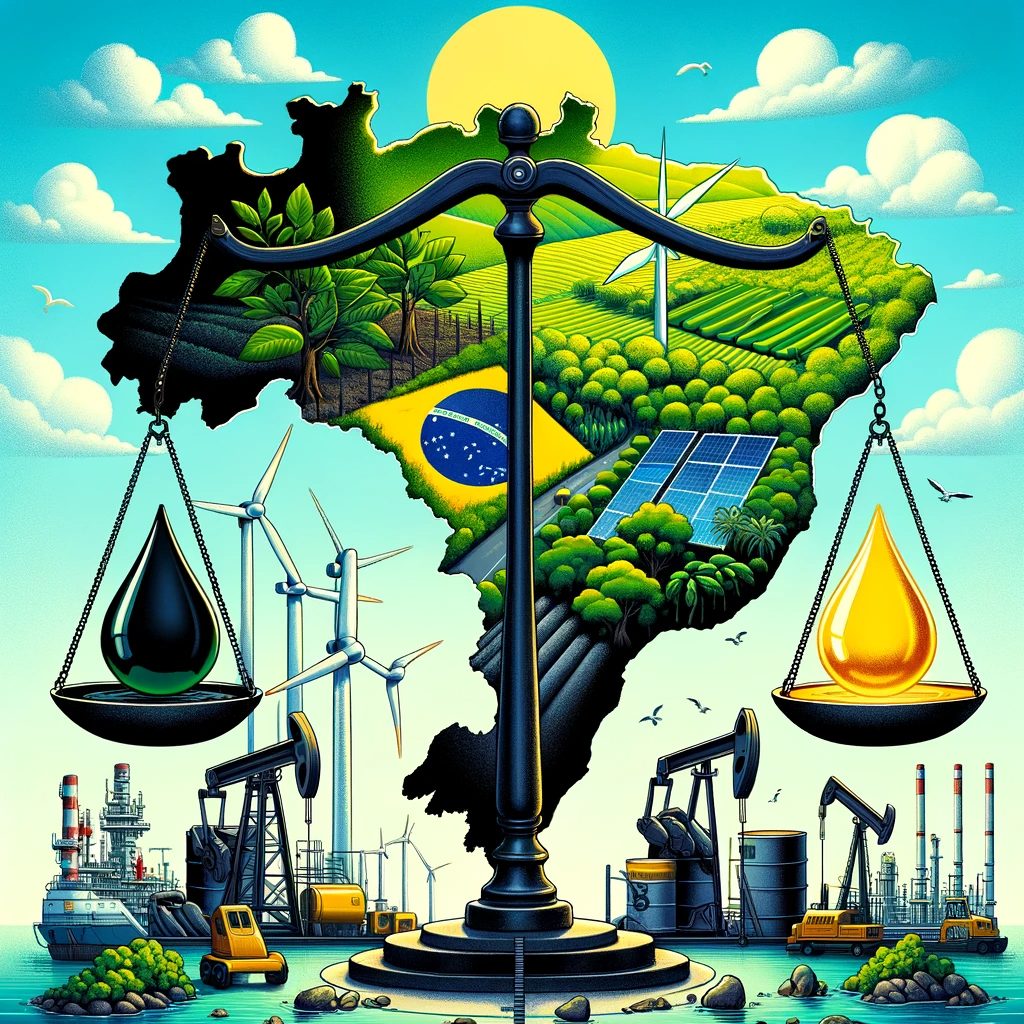
In the current geopolitical scenario, Brazil's entry into OPEC Plus represents an important milestone for global energy policy. This movement raises heated debates, considering Brazil's role as one of the leaders in renewable energy and, at the same time, as an emerging power in oil production. Analyzing this duality is crucial to understanding the implications of this decision for both Brazil and the global energy market..
Brazil, with its vast biodiversity and natural resources, has been a global example in the use of renewable energy. The Brazilian energy matrix is one of the cleanest in the world, with much of its electricity coming from hydroelectric sources, wind and biomass. This commitment to renewable energy reflects not only an environmental concern, but also a long-term economic strategy, aiming for sustainability and energy independence.
On the other hand, Brazil has intensified its oil production, especially with the pre-salt, placing it as one of the ten largest producers in the world. Entry into OPEC Plus, an alliance that includes members of the Organization of Petroleum Exporting Countries (OPEC) and other major producers such as Russia, can be seen as a strategic move to strengthen its position in the global oil market. This allows Brazil greater influence on decisions about production and prices, which can be extremely beneficial from an economic point of view.
However, This approach to OPEC Plus brings with it questions. How Brazil can balance its environmental commitments, especially in the context of climate change, with the increase in oil production? This dilemma calls into question Brazil's image as a leader in renewable energy and its role in combating climate change.. It is essential that Brazil maintains a careful balance, promoting sustainable development without compromising its natural resources and environmental commitments.
The solution may lie in diversification. While oil remains a valuable resource and an important economic engine, Brazil must continue investing and innovating in the renewable energy sector. This not only reinforces your position as an environmental leader, but also ensures a balanced energy transition for a more sustainable future. After all, Oil will still be an important commodity in the coming decades, but the future increasingly points to clean and renewable energy sources.
Faced with these challenges and opportunities, Brazil finds itself in a unique position. Its entry into OPEC Plus should not be seen only from an oil perspective, but as part of a broader energy strategy, that balances immediate economic needs with the long-term vision for sustainable development and environmental leadership.
This article not only illustrates the complexity of Brazil's energy decisions, but also highlights the importance of a balanced and progressive energy policy, that takes into account both immediate economic benefits and long-term sustainability.
References:
- Oil National Agency, Natural Gas and Biofuels (ANP). (2023). Oil and Gas Production in Brazil.
- Ministry of Mines and Energy (MME). (2023). National Energy Balance.
- Organization of Petroleum Exporting Countries (OPEC). (2023). Annual report.
